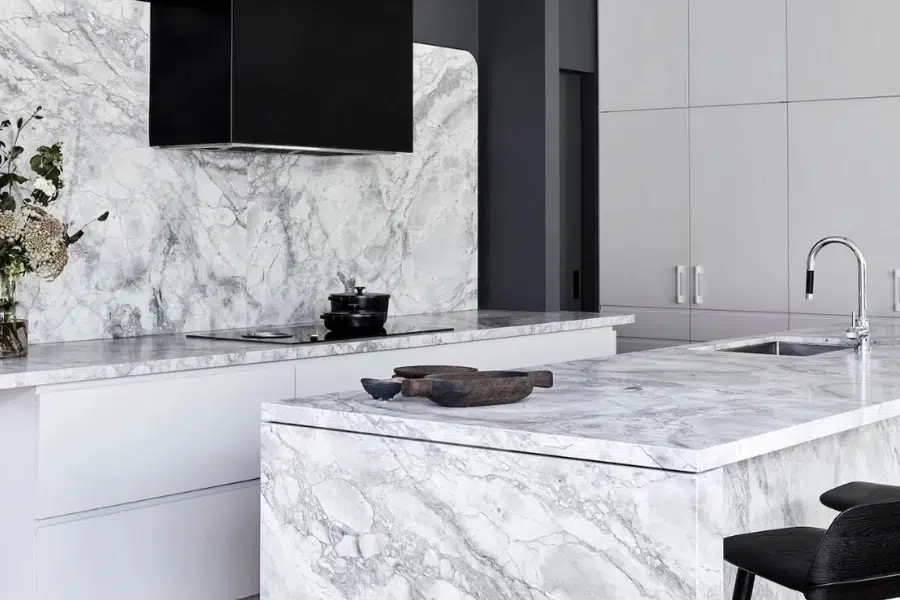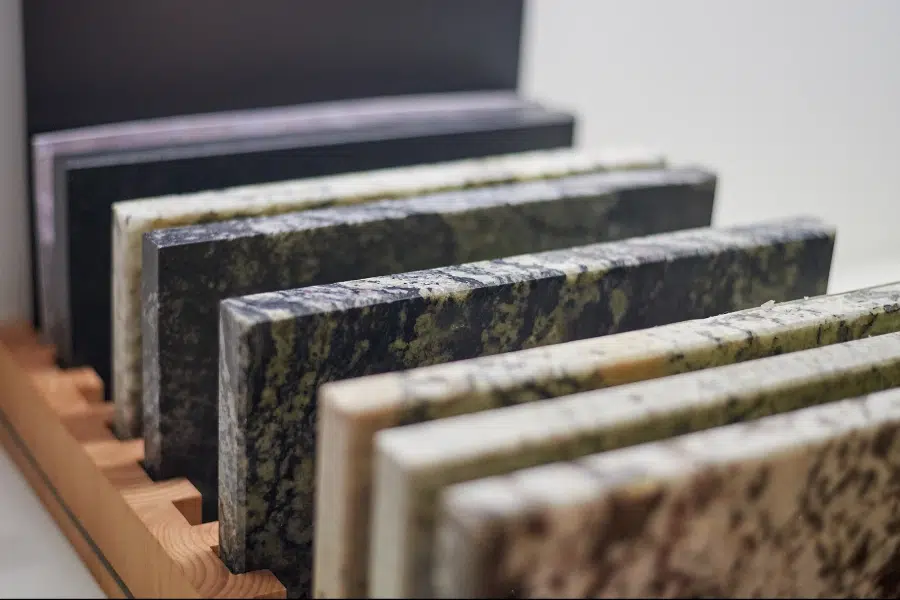How to Prevent Water Damage and Staining on Natural Stone Surfaces?
Understanding the Risks of Water Damage on Natural Stone
Natural stones are porous in nature and may be attacked by water if not protected. Water seeps into natural stones and deposits minerals such as calcium and magnesium that cause discoloration. The accumulation of minerals over time will result in etching that affects the structural integrity. Humid environments such as bathrooms and kitchens can further the problem because continuous water exposure increases the potential for damage.
Moreover, improper cleaning techniques, such as excessive use of harmful chemicals, may further add to the problem. Even failing to wipe spills in due time may end up causing long-term damage. When the risks are understood, it is only a first step in helping to keep your natural stone surfaces from being harmed by being exposed to hard water and other sources. Such risk mitigation includes proper sealing, regular maintenance, and attending to spills.

Find the Perfect Stone for
Your Project
Best Practices for Regular Cleaning to Protect Natural Stone
Proper and regular cleaning will make your natural stone slabs appear good and durable. Here are some good practices that you can follow to give your stone surfaces proper care and prevent damage:
Use pH-neutral cleaners
Clean natural stone using pH-neutral cleaners that are designed to clean stone surfaces. Acidic or alkaline cleaners can etch the stone and result in dullness; in most cases, it causes permanent damage. Always go for gentle products and those that are designed to help maintain the integrity of the stone. Cleaning it regularly with such cleaners will help in maintaining the natural luster of the stone without causing any damage.
Avoid excess water during cleaning
Although water is included as an integral part of cleaning, excess water could possibly be injurious to natural stone. Too much water will penetrate the porous surface and leave behind water spots and stains, which can become permanent if not wiped up in a timely manner. After cleaning, dry the surface with a soft, absorbent cloth to remove any residual moisture.
Gentle Cleaning Tools are Essential
Tools used are as important as the cleaners. For everyday cleaning, you can clean stone surfaces using soft cloths, sponges, or microfiber towels. Avoid using abrasive scrubbing pads or brushes that may scratch the delicate surface of the stone. If there are deeply seated stains, apply a poultice made from baking soda and water to gently pull out the blemish without any damage.
Regular Dusting and Sweeping
Dust and dirt act as natural abrasives to scratch and dull these stone surfaces over time. For this reason, regularly dust your stone using a microfiber cloth, and sweep the floors with a broom that has soft bristles. Keeping the stone free of dust and dirt will help it maintain its polished finish and extend its life span.
Respond Immediately to Spills
Attention to spills is important to prevent water damage and staining. Instead of wiping up spills, blot them with a soft cloth that will not spread the liquid around, then clean up with a pH-neutral cleaner and dry thoroughly to prevent any moisture from entering the stone. Quick action is the key to keeping your natural stone surfaces in top condition.
Effective Techniques for Removing Common Stains from Natural Stone
Stains on natural stone slabs can be very challenging to remove if not attended to in time. But once you know the right methods for the type of stain, your stone surfaces can easily be restored. Following are some effective methods to remove common stains from natural stone.
Identifying the Type of Stain
Knowing the type of stain on your natural stone slab is very important to its removal. Organic stains can result from food, beverages, grease, cosmetic products, and hard water deposits. Correctly identifying the stain type ensures the right cleaning method so you will not create further problems with the stone’s surface.
Removing Organic Stains
Many organic-based stains, whether from coffee or food in origin, can often be removed by policing. Mix baking soda with water to form a thick paste, spread it liberally over the stain, and cover with plastic wrap. Let it sit for 24 hours to dry. Remove the poultice and then rinse off with a pH-neutral cleaner.
Tackling Oil-Based Stains
Oil-based stains will require a bit more specialized treatment. Clean with a solvent-based cleaner specifically developed for natural stone; apply it to the stained area. Allow it a few minutes to help break down the oil. Wipe gently with a soft cloth, then use a pH-neutral cleaner to rinse. If it still doesn’t appear to remove the stain, repeat the process, but don’t scrub hard to avoid scratching the stone.
Water Stains and Mineral Deposits
Preventive measures of further staining
In most cases, preventing stains is much easier than removing them. Sealing your natural stone tiles regularly may be applied to protect them from damage by creating an invisible barrier that limits the stone’s absorbency. Besides wiping up spills as soon as possible and using coasters and mats, keeping the stone surfaces clean regularly will help keep your stone surfaces free of stains and maintain their beauty.
Long-Term Care Strategies for Maintaining Natural Stone Surfaces
Setting up long-term care strategies will help keep your natural stone slabs looking beautiful and strong for years to come. Such practices offer protection from everyday wear and tear and probable damages from water, staining, and other various types of damages that may make an impact on stone surfaces.
Regular Sealing
Humidity and Ventilation Control
Professional Maintenance for Longevity
Conclusion
Natural stone slabs offer beauty that is unmatched in any home decoration. However, their care has to be properly done for them to keep their beauty and serve their functions correctly. Knowing the right risks that the water poses, executing cleaning practices, effective stain removal, and committing to long-term care will see your stone surfaces stand the test of time. This helps in preventing water damage and staining; therefore, with the appropriate maintenance, sealant, and cleaning agents, you can continue to enjoy the eternal beauty of nature’s gift in your space.
Visit our Sydney or Newcastle showroom to discover the perfect natural stone slabs for your space.
Frequently Asked Questions (FAQs)
How often should I get my natural stone surfaces sealed?How often should I get my natural stone surfaces sealed?
Can I use regular household cleaners on natural stone?
What should I do when something spills on natural stone?
How should one eliminate water spots on natural stone?
Can professional maintenance really extend the life of my stone surfaces?
Natural Stone Slab Supplier
Avant Stone brings together 20 years of stone industry experience to provide you with a range of globally sourced stone slabs including Marble slabs, Granite slabs and Quartzite Slabs.
We aim provide you quality service and distinctive stone products for your home or your commercial space. Avant Stone is the premier Stone Supplier of Granite, Quartzite and Marble slabs in Sydney.
Our showroom is located centrally in Greenacre, a mere 20 minutes from Sydney & Parramatta CBD.
Give us a call: 0298170037
Email us at: info@avantstone.com.au



